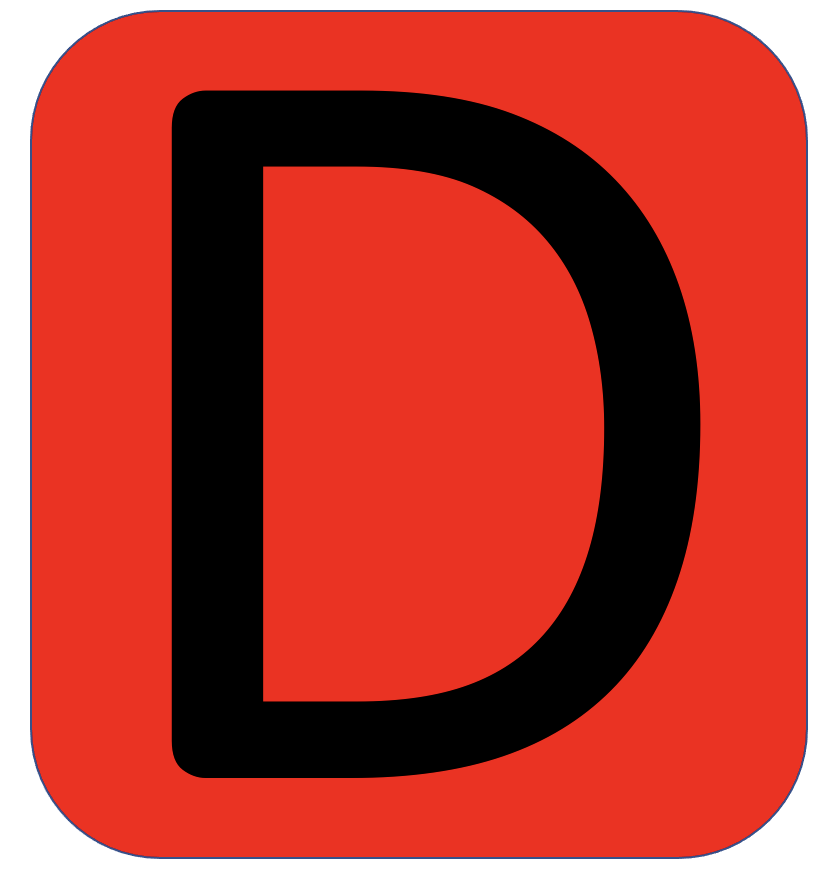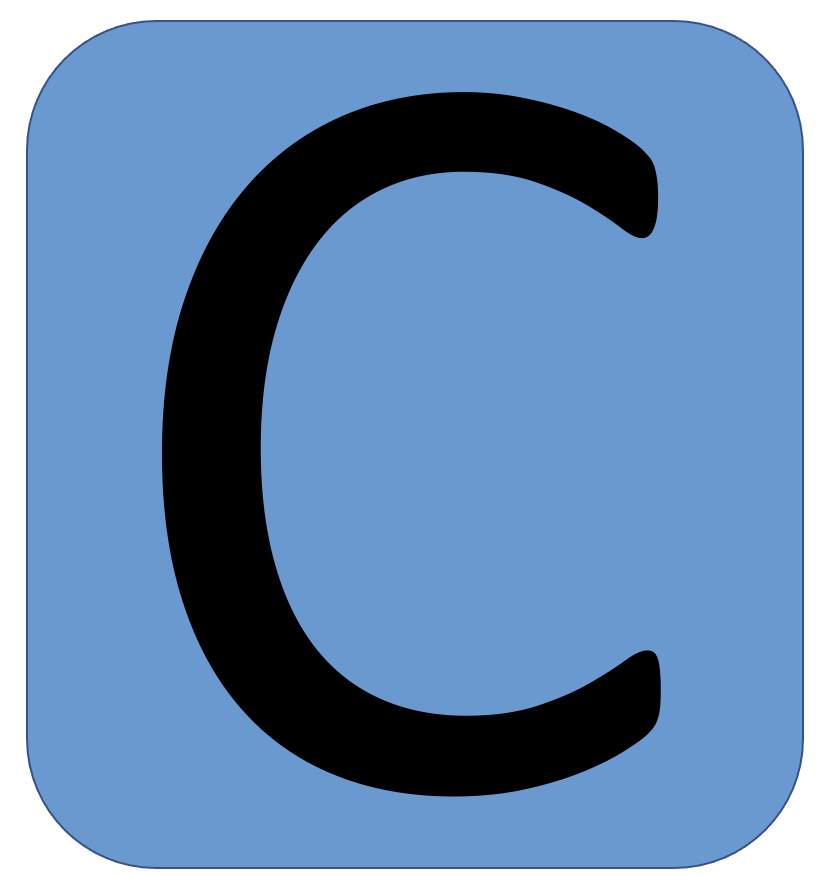What Are The Main DISC Personality Styles?
Adam Stamm
Managing Partner: Online DISC Profile
What are the four main DISC Personality Types?
The four main DISC Personality types are:
- Dominance (D Personality Type)
- Influence (I Personality Type)
- Steadiness (S Personality Type)
- Conscientiousness (C Personality Type)
These four personality types have distinct motivations, stressors, fears, and traits. By understanding your specific DISC Personality Type, you can uncover why you might have enjoyed a particular job or connected really well with someone. DISC is a multifaceted tool that can provide deep insights within its simple framework.
How were the four DISC Types Developed?
So, what exactly is DISC? DISC is a model that helps us understand our personality by measuring two primary scales of our behaviors—the most common areas affecting our communication and interpersonal relationships.
The two scales are represented by two halves of a circle, which represent the DISC map:
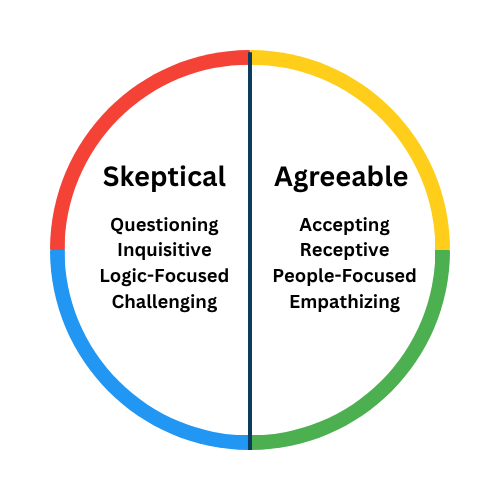
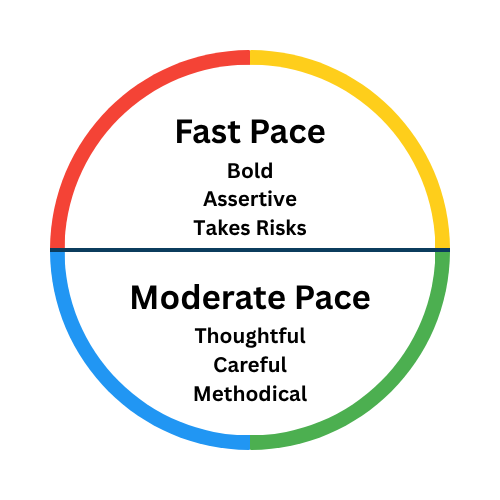
The circle split into left and right halves is closely related to the Big Five Personality (Five-Factor Model) for the Agreeableness scale. This scale identifies if someone focuses on task or people.
If someone scores high on the left side of the map, they are questioning, logic-focused, and challenging towards new ideas or concepts.
If someone scores high on the right side of this map, they are more agreeable towards new ideas, people, or concepts. They are accepting, people-focused, and empathetic.
The second scale breaks the circle into two halves again, this time with a top and a bottom half.
Those who score in the top half of the map are risk takers, bold, and assertive. If someone leans more on the bottom half of the map, they are thoughtful, careful, and methodical.
When we combine insights from both areas, we can identify which of the Four DISC Styles best represents someone’s personality.
Below is a description of each Style:
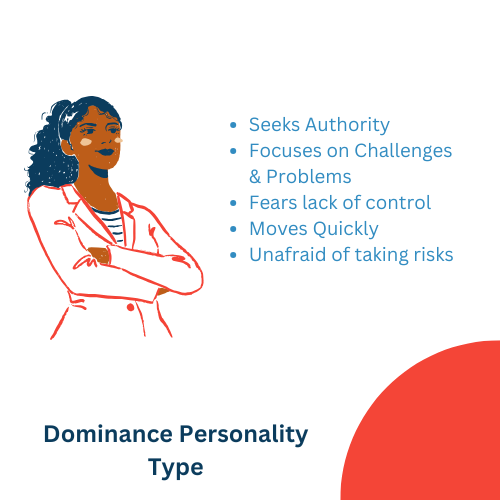
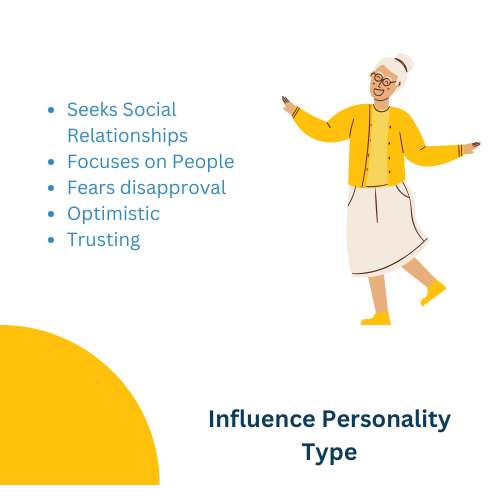
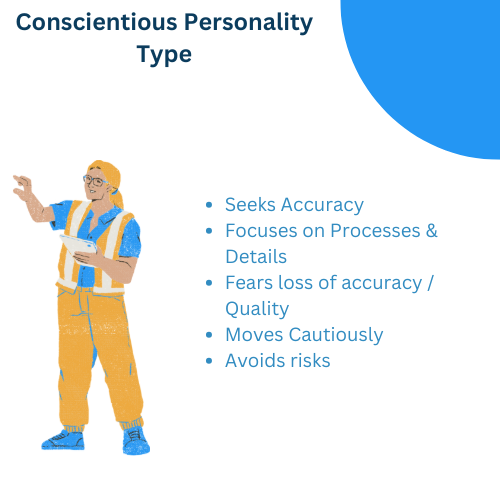
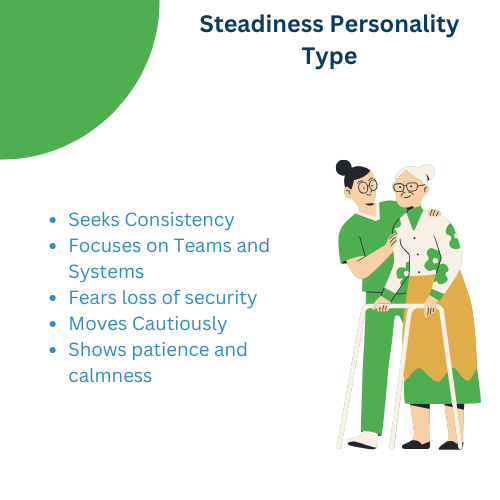
Now that you know the general meaning of DISC, we want to go in-depth about each Style. You can click on one of the styles to jump to the one you want to learn more about:
This article is designed to introduce the core concepts of DISC theory and the four main DISC Personality Types. These four personality types are broken into 12 unique DISC Personality types, which are measured in the full DISC Assessment.
Read our DISC Assessment Starters Guide for more information on how to use DISC with your team or organization, or learn more about how you can work with a DISC Coach.
As the label suggest, most people that fall in this category have a dominant personality. Individuals with this style are:
- Direct
- Result-oriented
- Strong-willed
People with this style are likely to seek control of over situations and other people. They are highly skeptical and fast paced. Frequently, it’s noted that people with this style have little patience for people and situations that do not conform to their goals, beliefs, or preferences. As a consequence, they might become irritated or become argumentative more than the average person. They tend to be direct, if not blunt, with their opinions.
Without this style, our teams wouldn’t complete projects as quickly.
One of the best adjectives to describe this DISC style is outgoing. Individuals with this style are often found to be:
- Lively
- High-Spirited
- Enthusiastic
- Social
The largest behavioral difference that the I-Personality Type has is that they seek out social opportunities and generally talk more than the average person. Frequently, people in this style are very interpersonally positive. People of this style are often the first ones to a gathering and the last ones to leave. When asked to draw a picture that represents their style, this group frequently draws a martini glass to represent how social they are.
Without this style, our teams wouldn’t be as engaging.
People with the S Style are typically interpersonally warm. Frequently, they describe themselves as:
- Calm
- Peaceful
- Even-tempered
Patience is one of the largest differences that sets this style apart from the others. Frequently they are the counselors of any given group. They will listen patiently to what issues their co-workers or peers are experiencing, and they are generally interested in what others have to say.
Without this style, our teams wouldn’t feel as supported.
A person with the C Style is usually described as analytical. Along with being analytical, individuals with this style are:
- Private
- Accurate
- Reserved
People with this style will typically take more time on projects than others because they 1) want to understand as much as they can, and 2) ensure that any opinion or work they provide is accurate. They have a strong attention to details, and are frequently finding ways to be more systematic to ensure that they are being as accurate as possible.
Without this style, our teams wouldn’t be as accurate.
Four Personality Traits Comparison
Below is a chart that lets you easily compare the differences between personality types. We suggest you read each column in its entirety before moving on to another personality type. See if you can identify the energy differences among the personality styles.
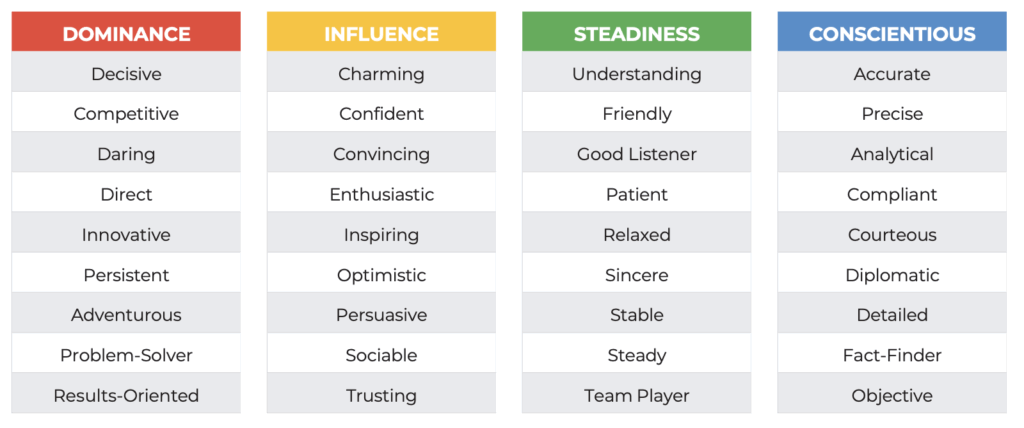
How to read your DISC Profile
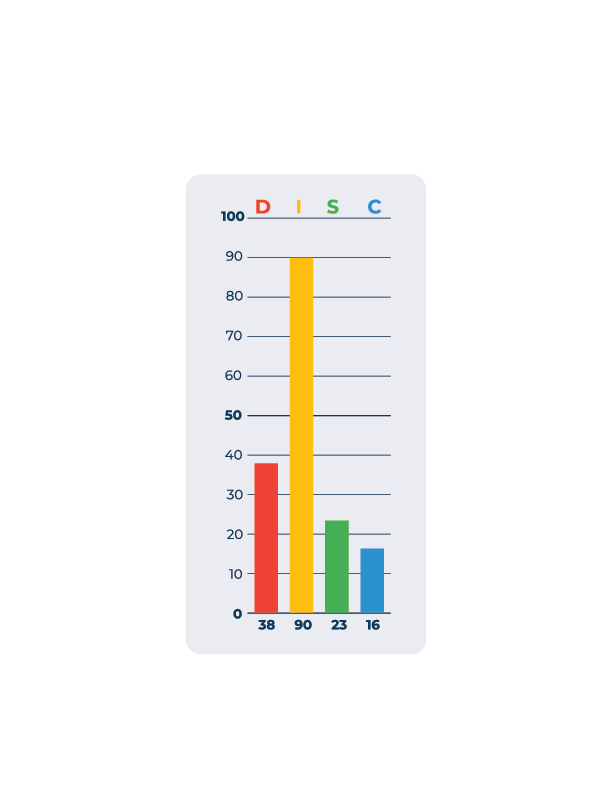
When you complete a DISC Basic profile, you will receive a chart that shows your DISC style along with a number score at the bottom of your graph for each primary style.
The higher your bar graph, the more inclined you are toward that particular style.
In this example, this individual is a highly inclined I Personality Type. Their DISC Profile shows a bar graph over the Influence scale that is much higher than any of the other styles.
At times, someone may have a combination profile, with two DISC Types aligned with their personality.
The cut-off for alignment with a style is indicated by a score of 50 (which you can see on the left side of this DISC Graph).
Is there a free DISC Assessment?
We believe in this tool so much that we have developed a free DISC profile that will identify your primary DISC Personality Type.
This report does not include your DISC Graph, but it will consist of your DISC Narrative to learn more about your DISC Personality.
Once you take the free DISC Assessment, you can upgrade it for $59.

